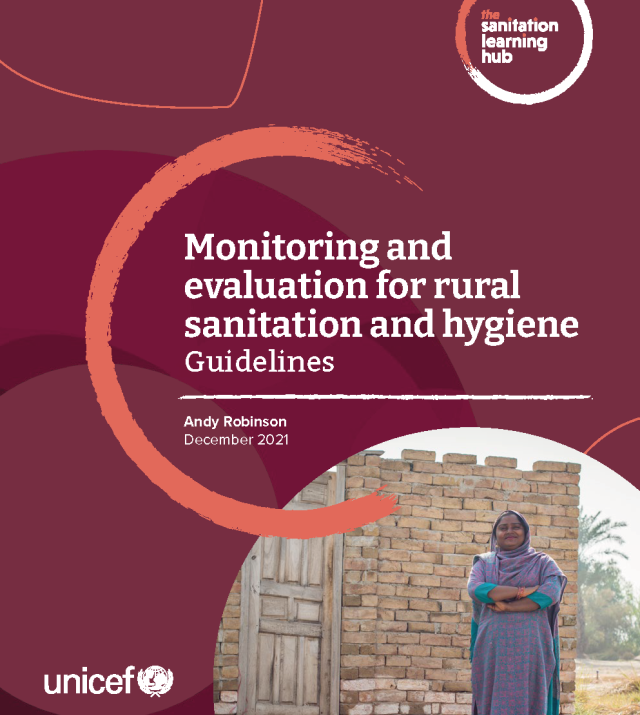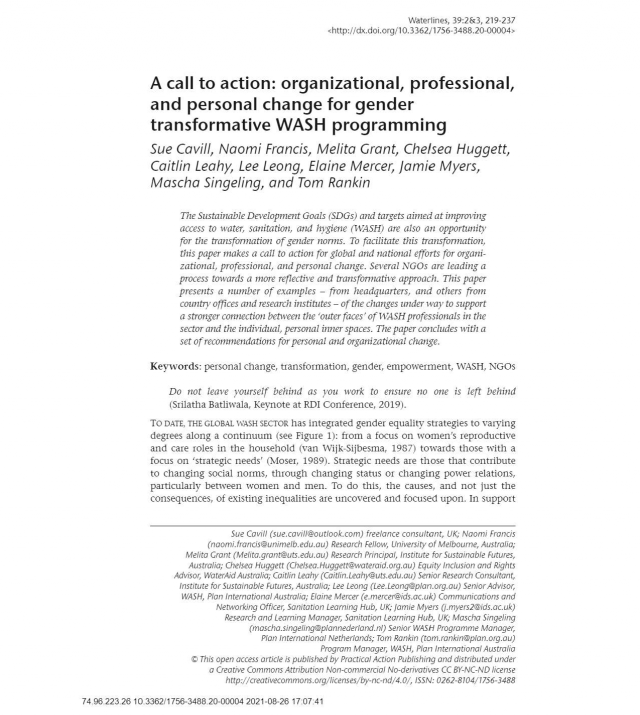
Maintenance Approaches to Improve the Sustainability of Rural Water Supplies

The United Nations proclaimed 1981 to 1990 the International Drinking Water Supply and Sanitation Decade. One outcome was the widespread installation of water supply infrastructure, particularly hand pumps, to increase water access in rural communities of developing countries. Community-based management was widely adopted to promote participatory approaches that leverage local knowledge and decentralize responsibility to the community level. In the decades following, evidence showed poor planning and implementation strategies left nearly a third of hand pumps non-functional. Within the last 10 years, an emerging paradigm shift is transitioning the rural water sector from infrastructure delivery to a service delivery approach (Lockwood and Smits, 2011; Smits, 2014). Numerous studies have sought to understand the factors that most influence the sustainability of rural water supply services. This understanding has led to the development of maintenance approaches, both reactive and preventive, that seek to improve functionality rates and maintain reliable continuity of rural community water services.
This document reviews literature about the factors influencing the sustainability of rural water services, and the emerging maintenance approaches seeking to address these factors and improve service reliability

